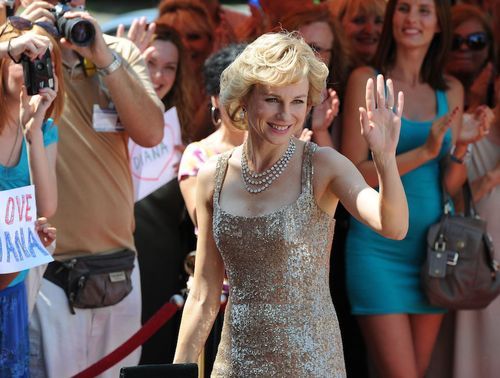The sad tale of the princess
The New British Cinema festival in Kyiv featured film Diana
Let us recall that this forum, invariably of great interest to the local audience, has been conducted for a decade by the British Council in Ukraine and Arthouse Traffic Company.
Oliver Hirschbiegel’s latest directing work, Diana, opened the festival and prompted a mixed reaction on the public’s part. However, rare is the film that prompts the same emotional and intellectual response both from general audience and from refined public. The latter includes not only professional film critics and reviewers, but so-called connoisseurs of the festival or arthouse cinema, too, who seek from it not so much emotional pleasure as food for thought and all sorts of intellectual speculation. This latter category, therefore, feels that the more complex and ambiguous the picture’s subject is, the more complicated and confusing its composition, the better. The former category, on the other hand, loves simplicity and clarity because they expect from art not intellectual provocations, but, we dare say, a catharsis, involving deep feelings and purification free from negative emotions.
When shooting a film about Diana’s last two years when she had already separated from Prince Charles, Hirschbiegel did not complicate his work with internal contradictions which are believed to characterize the princess, and highbrow audience disapproved his decision. Instead, he created a story, simple in content and plot, of how hard it is for love to survive in our world, overflowing with commercialism, politics, various kinds of prejudice, hostility, and other junk. Two years before leaving this world, ill-suited for high and strong feelings, the queen-in-waiting fell in love with a Pakistani emigre heart surgeon who so deeply wounded the princess’s heart with love.
It is this love, judging from the plot as set out in the film, that eventually led to the death of Diana (it does not consider the version of politically-motivated murder). For, if only Hasnat Khan (played by Naveen Andrews), who equally passionately loved the most famous woman in the world while completely ignoring her fantastic popularity, agreed to marry her and move to another country, she would never find herself at a wealthy admirer’s yacht, and then in Paris, where she died. Following the director’s lead, Naomi Watts does not try to complicate the image of Princess Di with internal contradictions of her character. The actress completely immerses herself into stormy feelings of a woman who wants to give her love, her tenderness and compassion to the world (the film shows Diana’s humanitarian work), and desires to get a simple family happiness rather than a prized royal crown as her reward. “I do not want to be the queen of the country, but the queen of hearts,” she said in an interview that made her divorce from the prince inevitable. It was then when she, previously forced to comply with diplomatic etiquette, rigid schedules, and various conventions that come with royal marriage, became free again. It was Hasnat who remained a slave and hostage to conventions of his faith and culture, making a new marriage impossible.
Despite the apparent simplicity of this cinematic rendition of Diana’s last love, the film does convey a very deep meaning, clearly expressed by Naomi Watts thanks to her talent and natural charm. Anyone who wants to live following one’s heart and love instead of reason or cold calculation has no business staying in this world. When Hasnat, who could save the princess from premature death with just a phone call, learns about her death, his only hope is to meet with the princess in the Garden of Eden...
This is a sad tale of love, told by Hirschbiegel, who has earned gratitude of millions of ordinary, hungry for love hearts, and criticism of those who prefer reasoning to love, and will earn still more of both, as the film will be released in Ukraine in late November.
The New British Cinema festival will continue in different cities of Ukraine till the beginning of December, with its Kyiv program ending on November 20 with screening of The Selfish Giant. Clio Barnard’s film calls on us to think about underprivileged children, who, like any of us, need care and love. As Mother Teresa said, this world is suffering primarily from hunger. And then she clarified that she meant the hunger of love...






